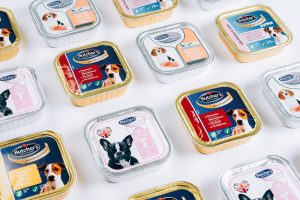The Importance of Proper Nutrition for Dogs
As a dog owner, you want to ensure that your furry friend is healthy and happy. One of the most important factors in achieving this is proper nutrition. A balanced and nutritious diet can help prevent health issues, boost energy levels, and improve overall well-being. However, with so many options for dog food and supplements on the market, it can be overwhelming to determine what’s best for your pet.
That’s where our complete guide to dog nutrition comes in. In this comprehensive guide, we’ll cover everything you need to know about feeding your dog a healthy and balanced diet. From understanding the basics of dog nutrition to building a balanced meal plan and addressing common dietary issues, we’ve got you covered. We’ll even dive into the benefits of homemade dog food and how to safely prepare it for your pup.
Whether you’re a new dog owner or simply looking to improve your dog’s diet, our guide provides practical tips and insights to help you make informed decisions about what to feed your furry friend. So sit back, relax, and get ready to learn all about the importance of proper nutrition for dogs and how to achieve it through a well-balanced diet.
Understanding Dog Nutrition
Proper nutrition is essential to the health and well-being of your four-legged companion. An imbalanced or inadequate diet can lead to a variety of health problems in dogs, from skin and coat issues to digestive problems and more. To understand the best way to feed your pup, it’s important to have a basic understanding of dog nutrition.
The main nutrients that dogs need in their diets are proteins, fats, carbohydrates, vitamins, and minerals. Each nutrient plays an important role in keeping your pup healthy, so it’s important to choose food that contains the proper balance of these nutrients. Dog food labels list the percentage of each nutrient in the food and provide a useful tool for assessing the nutritional quality of the food. When reading labels, look for foods that are high in animal proteins, low in carbohydrates, and contain a variety of fruits, vegetables, and other sources of vitamins and minerals.
Common nutrient deficiencies in dogs can lead to a variety of health problems. Studies have found that vitamin E deficiencies can lead to weakened immune systems, vision problems, and skin issues. Vitamin D deficiencies can cause weakened muscles and bones, while calcium deficiencies can increase the chances of developing osteoporosis. Omega-3 fatty acids are essential for healthy skin and coat, while B vitamins are important for metabolism and energy levels.
It’s important to feed your pup a balanced diet with all the essential nutrients they need for good health. Choose foods that are high in animal proteins and low in carbohydrates, as well as foods that contain a variety of sources for vitamins and minerals. Pay attention to labels when choosing food for your pup, as well as any signs of nutrient deficiencies that may arise. With the right diet plan and plenty of exercise, you can ensure your pup has all the nutrients they need for a long and healthy life.
Building a Balanced Diet for Your Dog
Having a balanced diet is essential for maintaining good health for your dog. But how do you make sure that your pet’s meals are balanced? It’s important to understand the dietary needs of your breed, their age and size, as well as the nutrients that are necessary for their overall wellbeing.
When determining the appropriate serving size for your four-legged friend, it’s important to take into consideration the breed, age, and weight of your dog. Smaller breeds with a faster metabolism require smaller portions more frequently throughout the day than larger breeds that tend to eat fewer meals. Puppies and senior dogs have different nutritional needs than adult dogs and should also be taken into account when planning meals.
Creating balanced meals for your pup doesn’t have to be complicated or time-consuming. Start by choosing a high quality kibble, wet food or raw diet that is specifically tailored for your dog’s particular needs. Then make sure to include healthy proteins, carbohydrates and fats in their diet. Some examples of nutritious meals could include lean chicken or turkey, cooked vegetables like sweet potatoes, brown rice and even some low-fat natural yoghurt. Fresh fruits like apples, bananas, and blueberries also make great low-calorie treats for your pup.
In addition to providing a well-balanced diet that meets all of their nutritional needs, it’s also important to offer variety. Mix up the proteins and carbohydrates in order to give your pup an interesting mix of flavors and textures. This will also help keep them from getting bored with the same old food day after day. You can also create fun combinations like beef stew with sweet potatoes and diced carrots or turkey meatballs with zucchini noodles.
No matter what type of food you choose to give your pup, making sure it’s healthy and nutritionally balanced is key. By understanding the dietary needs of your four-legged family member, you can ensure that they get all of the necessary nutrients needed for a happy and healthy life.
Common Issues when it comes to Dog Nutrition
When it comes to dog nutrition, there are certain common pain points that owners should be aware of. Addressing these issues is key to ensuring that your pup is getting the nutrition they need to stay healthy and happy.
Food Allergies and Sensitivities
Food allergies and sensitivities can be a major issue for dogs, particularly when it comes to commercial dog food. Many dog foods use cheap fillers and artificial ingredients that can trigger reactions in sensitive dogs. To prevent this, it’s important to read the labels carefully and look for foods that are made with natural ingredients. Additionally, you should also look for foods that are free of common allergens like soy, corn, wheat, and dairy. If your pup is particularly sensitive, you may even want to consider making homemade dog food, as this is the best way to eliminate all potential allergens from their diet.
Digestive Problems
Another common issue in dog nutrition is digestive problems. Dogs can often experience issues such as diarrhea and vomiting due to poor digestion or a poor quality diet. To help promote better digestion, you should look for foods that are high in fiber and contain probiotics. Additionally, it’s important to make sure your pup is drinking enough water and getting plenty of exercise. If your pup is still having digestive problems, you may want to talk to your vet about switching them to a different diet.
Transitioning to a New Diet or Food Brand
If you’re switching your pup’s diet or food brand, it’s important to do so gradually. Start off by introducing small amounts of the new food into their old food and gradually increasing the amount until they’re fully transitioned over. This will help reduce the risk of stomach upset or other digestive issues that can occur when transitioning from one food to another too quickly.
Supplements and Vitamins
In addition to regular meals, there are also supplements and vitamins that can be added to your pup’s diet for extra nutrition. Talk to your vet about what supplements would be best for your dog based on their age, breed, size, and health conditions. Some of the most common supplements include omega-3 fatty acids, probiotics, glucosamine and chondroitin sulfate, multivitamins, antioxidants, and digestive enzymes.
By following these tips and taking the time to understand your pup’s dietary needs, you can help ensure that they get the proper nutrition they need to stay healthy and happy. From addressing common dietary issues such as food allergies or sensitivities to transitioning your pup to a new diet or food brand, there are many ways you can ensure that your dog is getting the nutrition they need.
Making the Switch to Homemade Dog Food
Making the switch from commercial to homemade dog food may seem like a daunting task, but it doesn’t have to be! With a little bit of planning and research, you can easily create a balanced diet for your pup that is both nutritious and delicious.
There are several benefits to feeding your dog homemade food over store-bought products. Firstly, you’ll have more control over the ingredients that go into your dog’s meals, meaning you can tailor the diet to meet their specific needs. You’ll also have the assurance that you’re providing your pup with a nutrient-rich meal every time they eat. Finally, you can save money by avoiding expensive commercial pet food brands.
Before you make the switch, it’s important to take the necessary safety precautions when preparing and storing homemade dog food. While it’s tempting to just throw all the ingredients together in a bowl and call it a day, this can leave your pup vulnerable to food-borne illnesses such as salmonella. Make sure you always read the instructions on any raw food products before feeding them to your pup and use separate cutting boards and utensils for human and pet food.
Once you’ve established the basics of food safety, it’s time to start creating your pup’s homemade meals! Start off by finding recipes that include whole ingredients such as lean proteins, complex carbohydrates, and healthy fats. Then use these recipes as your base and add additional ingredients like fruits and vegetables to increase nutrient density. It may also be helpful to consult with a veterinarian or canine nutritionist to ensure you are creating a balanced diet for your pup.
Making the switch to homemade dog food doesn’t have to be complicated or time consuming – with a bit of planning and research, you can easily create meals that are both healthy and delicious! Keep in mind that there is no one-size-fits-all solution when it comes to canine nutrition, so make sure you consult with a professional if needed and don’t forget about the importance of portion control when feeding your pup homemade meals.
Making the Right Nutritional Choices for Your Beloved Dog
Proper nutrition is vital to your dog’s health and well-being. This guide has provided you with a comprehensive understanding of dog nutrition, including the nutrients your dog needs, how to choose the right food, and how to create a balanced diet. You have learned about common dietary issues and how to address them, as well as tips for transitioning your dog to a new diet or homemade food.
It’s important to remember that every dog is unique, and their nutritional needs may vary based on factors such as breed, age, and weight. By using this guide as a starting point, you can tailor your dog’s diet to meet their specific needs.
In summary, when it comes to dog nutrition, knowledge is power. With the right information and a little bit of experimentation, you can provide your furry friend with a healthy and balanced diet that will keep them happy and thriving for years to come.
https://www.petsmart.com/learning-center/dog-care/what-should-i-feed-my-dog/A0209.html







